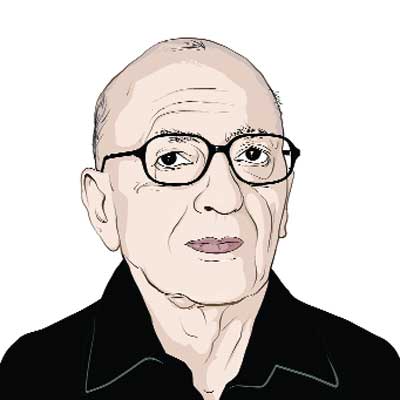Opinion Emergency exit
Its 37th anniversary went practically unnoticed in the country
Its 37th anniversary went practically unnoticed in the country
There is a famous Sherlock Holmes story built around the master detectives utter surprise,at a crime site,over the mystery of the dog that did not bark during the night. What suddenly reminded me of this was that the 37th anniversary of the Emergency came and went this week practically unnoticed by the country. Until very recently,on every June 26,there used to be a tremendous upsurge of protests across India. In Delhi,there used to be at least one major rally,organised by the BJP and usually addressed by L.K. Advani. Moreover,the anti-Emergency sentiment was voiced at any number of seminars and in angry newspaper articles and so on.
It would be untrue to say that absolutely no notice was taken of the Emergency this time around. But the fact remains that criticism of the horrendous event was confined to the internet. Some of the known critics of the Gandhi family and the present regime had posted their messages. One even argued that Pranab Mukherjee must not be elected president because of the Shah Commissions strictures on his doings during the Emergency as minister of state for revenue. Also on the internet was a tribute to Jayaprakash Narayan,better known as JP,who had led the movement for Indira Gandhis ouster. But that was about all.
In the nearly dozen newspapers that I read,or at least scan,every day,the only reference to the Emergency I found was an authors regret that since then most Indian writers and journalists have taken to self-censorship (A more docile writing,IE,June 27). For the rest,the great Indian public was unmoved.
Let there be no mistake about it. The Emergency was one of the more squalid episodes in modern Indian history. It was nothing short of a 19-month nightmare. It took a very long time to flush out the poison it had injected into the body politic. In my biography of Indira Gandhi,published in 1989,I had called the Emergency her cardinal sin. In all my subsequent writings on the subject,I have seen no reason to change this assessment. At the same time,I have never hesitated to take note of what she was up against or of the peoples changing view of both her and the Emergency over the years.
On her 25th death anniversary in October 2009,as endless TV talk shows,colossal coverage in the print media and several public opinion polls showed,Indira Gandhis image was much more burnished than at any other time,except immediately after the heady victory in the Bangladesh War in 1971. What struck me most was that a decade earlier,the Indian chattering classes were not prepared to countenance even a single word favourable to her.
One of the main factors behind this change is Indian demography. Nearly two-thirds of the countrys population is below 35. It knows little about the Emergency and cares even less. But that is not the whole story. Thanks to increasing longevity,a huge number of those who lived under the Emergency and hated it are also around and active. Empirical evidence shows that many,though not all,of them have also changed their opinion.
For example,there is a growing view that Indira Gandhi alone cannot be blamed for the monstrous event in the mid-1970s. The Emergency,it is said,was scripted jointly by Indira and JP. The authoritarianism of mother and son and the anarchy sought to be unleashed by the Gandhian leader,were but two sides of the same coin,in the words of the premier sociologist,Andre Béteille. Eminent historian Bipan Chandra and Ramachandra Guha,author of India After Gandhi,broadly agree.
Then there is the rude reality that without any declaration of Emergency,horrible things have been happening in various parts of the country that sometimes overshadow the excesses of the Emergency. The Samajwadi Party leader,Mulayam Singh Yadav,cried himself hoarse during the last few years saying that the Mayawati government had unleashed in Uttar Pradesh terror worse than anything during the Emergency. Now others are saying the same thing about the state of affairs in UP under the government headed by his son,Akhilesh,and with good reason. Often the situation in other states,especially Tamil Nadu,West Bengal,Gujarat and Manipur,has been no different. There was a lament against corruption and extortion during the Emergency,no doubt. But what is happening in this department today would dwarf the Himalayas.
On one point there is hardly any disagreement: ugly the Emergency surely was. But under it India was never anything like Germany under Hitler,Russia under Stalin,China under Mao or Pakistan under Zia. Perhaps that could explain why the Emergency,though unforgivable,is being forgotten.
The writer,a Delhi-based political commentator,is the author of Indira Gandhi,express@expressindia.com





